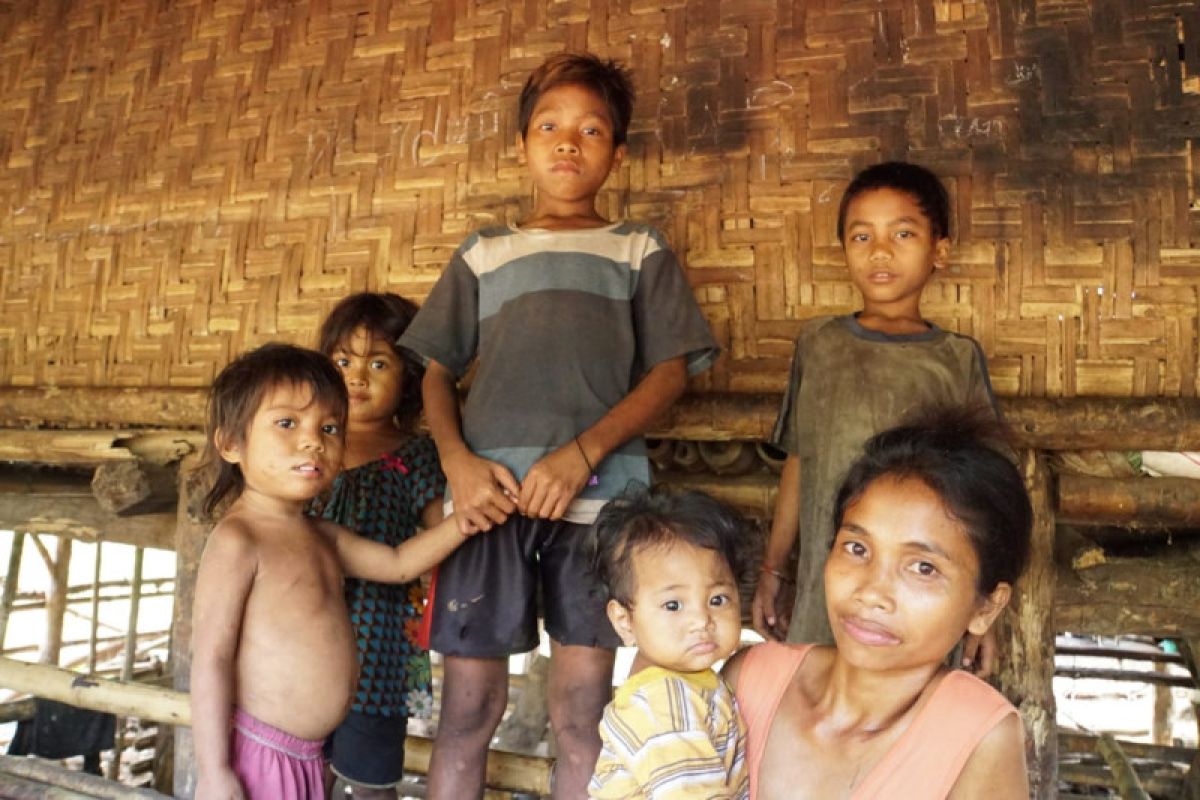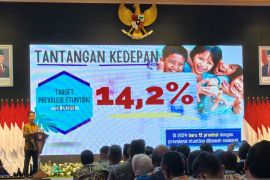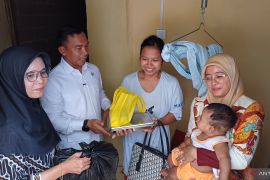Health Minister Budi Gunadi Sadikin had earlier stated that one in four Indonesian children experienced stunting. Moreover, one in 10 children is malnourished, so planned action is deemed necessary in order to ensure Indonesian children grow healthily.
Since the issuance of the 2021 Presidential Regulation concerning acceleration of the reduction of stunting, leaders in the country have readied several regulations and various programs for stunting reduction.
Cooperation between ministries, institutions, and the participation of non-government parties, such as industries and universities, were strengthened. The government also started paying close attention to the environments around families, including the sanitation system and toilets.
The National Population and Family Planning Agency (BKKBN) has also designed various programs to improve nutrition in the family, such as the Healthy Kitchen to Overcome Stunting (Dashat) program and the formation of the Family Assistance Teams (TPKs).
The BKKBN also directly monitored the condition of families through the 2021 Family Data Collection (PK21), which was introduced to the public on November 4, 2021.
Entering the second year after the presidential regulation was issued, the government started introducing the National Action Plan for Reducing Indonesia's Stunting Rate (RAN PASTI) to regions, which will serve as the basis for the strategy to deal with stunting.
Related news: BKKBN collaborates with Education Ministry to eradicate stunting
Stunting prevalence in regions
Since March 1, 2022, the BKKBN has visited some regions with the largest population, including Central Java, East Java, North Sumatra or the region with the highest prevalence of stunting, such as East Nusa Tenggara.
Head of the National Population and Family Planning Agency (BKKBN) Hasto Wardoyo stated that based on data from the 2021 Indonesia's Nutritional Status Study (SSGI), several districts and cities in those provinces were assigned the red status for stunting or had stunting prevalence rates of above 30 percent.
East Java, for instance, has four districts -- Bangkalan, Pamekasan, Bondowoso, and Lumajang -- with prevalence rates above 30 percent.
Moreover, East Nusa Tenggara recorded 15 districts whose stunting prevalence is above 30 percent. Those 15 districts are South Timor Tengah, North Timor Tengah, Alor, Southwest Sumba, East Manggarai, Kupang and Rote Ndao, Belu, West Manggarai, West Sumba, Central Sumba, Sabu Raijua, Manggarai, Lembata, and Malaka.
Meanwhile, South Timor Tengah and North Timor Tengah are the districts in East Nusa Tenggara whose stunting prevalence rate had surpassed 46 percent.
“None of the regions in East Nusa Tenggara have a green status or a stunting prevalence of between 10 and 20 percent, let alone the blue status for the prevalence of stunting below 10 percent," Wardoyo pointed out.
Meanwhile, regions with yellow status, or those with stunting prevalence of 20-30 percent, are found in North Sumatra.
Several districts and cities that have yellow status include Samosir, Simalungun, West Nias, Labuan Batu, South Labuhan Batu, North Tapanuli, Humbang Hasundutan, Gunung Sitoli, Tanjung Balai, Sibolga, Central Tapanuli, Karo, Toba Samosir and Binjai.
Meanwhile, districts and cities in North Sumatra categorized as green or those with prevalence rates ranging from 10 to 20 percent are Serdang Bedagai, Medan, Asahan, Tebingtinggi, Pematang Siantar, and Deli Serdang.
One of the regions with blue status, or stunting prevalence below 10 percent, is Grobogan District in Central Java.
Acting Director-General of Public Health at the Health Ministry Murti Utami stated that based on the 2021 Indonesian Toddler Nutritional Status Survey (SSGBI), as many as 51.2 percent of children under five and suffering from stunting were found in the five provinces with the largest population.
The five provinces with the highest number of stunted children are West Java, with 1,055,608 children; East Java, with 653,218 children; Central Java, with 543,963 children; Banten, with 294,862 children; and North Sumatra, with 383,403 children.
She also noted that seven provinces, with the highest prevalence of stunting in Indonesia were East Nusa Tenggara, 37.8 percent; West Sulawesi, 33.8 percent; Aceh, 33.2 percent; West Nusa Tenggara, 31.4 percent; Southeast Sulawesi, 30.2 percent; South Kalimantan, 30 percent; and West Kalimantan, 29.8 percent.
Related news: Social affairs ministry to reduce stunting rates in five provinces
Preparing soon-to-be-married couples
As the government targets reducing Indonesia’s stunting prevalence to 14 percent by 2024, there are only two years left to achieve the target.
The government has started to focus on handling the main cause of stunting by implementing programs targeting couples contemplating marriage and pregnancy.
According to BKKBN head Hasto Wardoyo, as many as 37 percent of young women are already anemic. The figure is higher among pregnant women at around 48 percent, he noted.
In fact, anemia suffered by pregnant women is one of the risk factors that affect the baby's growth and can potentially cause women to give birth to a stunted baby, especially if the mother-to-be is suffering from chronic energy deficiency and malnutrition.
To handle this issue, Utami said that the Health Ministry is targeting 16,256,613 female teenagers to receive iron supplements.
In addition, the BKKBN, in collaboration with the Religious Affairs Ministry, has inaugurated a three-month premarital health screening program for couples contemplating marriage as part of the efforts to eradicate stunting.
The result of the health screening will be submitted to BKKBN's Elisimil Application and consistently monitored by the Family Assistance Team (TPK).
“Women whose upper arm circumference is less than 23.5 centimeters are allowed to get married. However, if they want to get pregnant, they will have to increase it first, so that their nutritional requirements are fulfilled and the child they are carrying is not born stunted,” Wardoyo elaborated.
Apart from the prospective mother, the program will prepare future fathers to have the best quality sperms and provide them counselling to change bad habits, such as smoking or addiction to drugs, in order to maintain the sperm quality.
Earlier, Health Minister Budi Gunadi Sadikin advised that children's growth should be routinely monitored through integrated health services posts (Posyandu).
Mothers must provide exclusive breastfeeding until the child is two years of age and routinely provide children with ample nutritious food containing animal protein to prevent malnutrition.
Good nutrition is an essential foundation for a child to grow and develop optimally.
Related news: Government prioritizes efforts to curb stunting, poverty rates
Related news: Eating fish easiest way to fight stunting: Fisheries Ministry
Editor: Suharto
Copyright © ANTARA 2022












